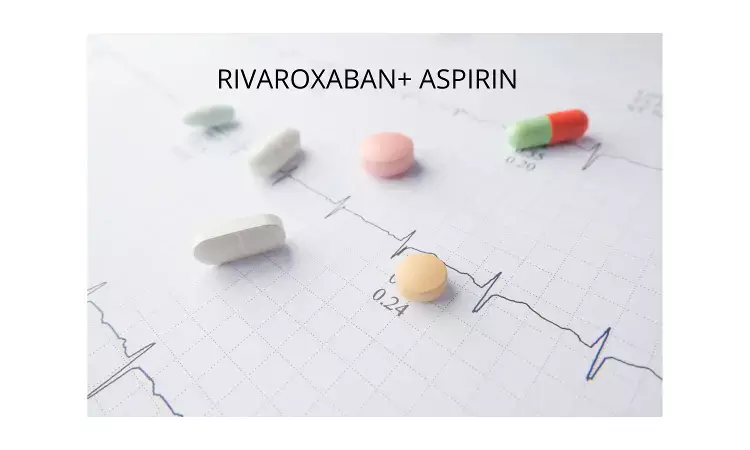- Home
- Medical news & Guidelines
- Anesthesiology
- Cardiology and CTVS
- Critical Care
- Dentistry
- Dermatology
- Diabetes and Endocrinology
- ENT
- Gastroenterology
- Medicine
- Nephrology
- Neurology
- Obstretics-Gynaecology
- Oncology
- Ophthalmology
- Orthopaedics
- Pediatrics-Neonatology
- Psychiatry
- Pulmonology
- Radiology
- Surgery
- Urology
- Laboratory Medicine
- Diet
- Nursing
- Paramedical
- Physiotherapy
- Health news
- Fact Check
- Bone Health Fact Check
- Brain Health Fact Check
- Cancer Related Fact Check
- Child Care Fact Check
- Dental and oral health fact check
- Diabetes and metabolic health fact check
- Diet and Nutrition Fact Check
- Eye and ENT Care Fact Check
- Fitness fact check
- Gut health fact check
- Heart health fact check
- Kidney health fact check
- Medical education fact check
- Men's health fact check
- Respiratory fact check
- Skin and hair care fact check
- Vaccine and Immunization fact check
- Women's health fact check
- AYUSH
- State News
- Andaman and Nicobar Islands
- Andhra Pradesh
- Arunachal Pradesh
- Assam
- Bihar
- Chandigarh
- Chattisgarh
- Dadra and Nagar Haveli
- Daman and Diu
- Delhi
- Goa
- Gujarat
- Haryana
- Himachal Pradesh
- Jammu & Kashmir
- Jharkhand
- Karnataka
- Kerala
- Ladakh
- Lakshadweep
- Madhya Pradesh
- Maharashtra
- Manipur
- Meghalaya
- Mizoram
- Nagaland
- Odisha
- Puducherry
- Punjab
- Rajasthan
- Sikkim
- Tamil Nadu
- Telangana
- Tripura
- Uttar Pradesh
- Uttrakhand
- West Bengal
- Medical Education
- Industry
Rivaroxaban and aspirin combo improves CV outcomes in stable ASCVD: COMPASS Trial

Cardiovascular diseases are the leading cause of death globally. Though new medications and the use of effective secondary prevention strategies, 5% to 10% of patients with cardiovascular disease have recurrent events each year with worst outcomes mostly being cardiac death. Rivaroxaban is used to prevent blood clots from forming due to atrial fibrillation however its known to cause major risk of bleeding when given higher doses, hence its safety is a question mark for its regular use.
A new trial COMPASS by Dr. John W. Eikelboom, M.B.B.S. and team revealed that patients with stable atherosclerotic vascular disease, those assigned to rivaroxaban (2.5 mg twice daily) plus aspirin had better cardiovascular outcomes and more major bleeding events than those assigned to aspirin alone. 5 mg of rivaroxaban twice daily alone did not help any better than aspirin alone and resulted in more major bleeding events.
The trial is published in The New England Journal of Medicine.
The objective of the trial was to evaluate whether rivaroxaban alone or in combination with aspirin would be more effective than aspirin alone for secondary cardiovascular event prevention.
The trial was a double-blinded trial, 27,395 participants with stable atherosclerotic vascular disease were randomly assigned to receive rivaroxaban (2.5 mg twice daily) plus aspirin (100 mg once daily), rivaroxaban (5 mg twice daily), or aspirin (100 mg once daily). The primary outcome was a composite of cardiovascular death, stroke, or myocardial infarction. The study was stopped for superiority of the rivaroxaban-plus-aspirin group after a mean follow-up of 23 months.
The results of the trial were
• The primary outcome occurred in fewer patients in the rivaroxaban-plus-aspirin group than in the aspirin-alone group (379 patients vs. 496 patients HR 0.76; 0.66 to 0.86; P<0.001; z=−4.126).
• Major bleeding events occurred in more patients in the rivaroxaban-plus-aspirin group (288 patients vs. 170 patients; HR, 1.70; 1.40 to 2.05; P<0.001).
• There was no significant difference in intracranial or fatal bleeding between these two groups. There were 313 deaths in the rivaroxaban-plus-aspirin group as compared with 378 in the aspirin-alone group (HR, 0.82, 0.71 to 0.96; P=0.01; threshold P value, 0.0025).
• The primary outcome did not occur in significantly fewer patients in the rivaroxaban-alone group than in the aspirin-alone group, but major bleeding events occurred in more patients in the rivaroxaban-alone group.
Dr. John and team concluded that "Among patients with stable atherosclerotic vascular disease, those assigned to rivaroxaban (2.5 mg twice daily) plus aspirin had better cardiovascular outcomes and more major bleeding events than those assigned to aspirin alone. Rivaroxaban (5 mg twice daily) alone did not result in better cardiovascular outcomes than aspirin alone and resulted in more major bleeding events."
Reference: DOI: 10.1056/NEJMoa1709118
Medical Dialogues consists of a team of passionate medical/scientific writers, led by doctors and healthcare researchers. Our team efforts to bring you updated and timely news about the important happenings of the medical and healthcare sector. Our editorial team can be reached at editorial@medicaldialogues.in.
Dr Kamal Kant Kohli-MBBS, DTCD- a chest specialist with more than 30 years of practice and a flair for writing clinical articles, Dr Kamal Kant Kohli joined Medical Dialogues as a Chief Editor of Medical News. Besides writing articles, as an editor, he proofreads and verifies all the medical content published on Medical Dialogues including those coming from journals, studies,medical conferences,guidelines etc. Email: drkohli@medicaldialogues.in. Contact no. 011-43720751


